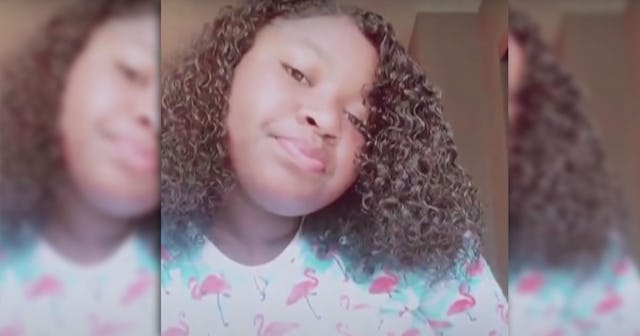Op-Ed: Don't You Dare Make Another Excuse About Ma'Khia Bryant's Killing

My daughter is five years old. She is a bubbly, bright-eyed, curly-haired little girl, half Black and half South Asian. When I think about her future as a teenager, nine or so years from now, I don’t think that I’ll be a grieving mother, standing over her body, as she lay dying in front of our home, her life taken too soon at the hands of a cop like Ma’Khia Bryant’s life was.
Can you imagine what Ma’Khia’s family is feeling right now? Another Black person, another child, killed at the hands of a police officer. The police department, like so many others, will issue a slew of excuses: “this wasn’t a racist act,” or “he feared for his life,” or “he tried to protect others,” or my favorite, “let’s wait until we know all of the facts.” What more is there to know? We have a 16-year-old young Black woman dead. We have police officers killing Black people as if it’s their job.
It is not.
The sole job of police officers is to keep us safe, no matter our skin color or where we live or who we love. Their job is to provide around-the-clock support and help those in need. When the person in need calls them like Ma’Khia may have (it’s unclear at this time who placed the initial 911 call, but many suspect Ma’Khia did), they need to help — but for Black communities, what they tend to do is harm. Every time an unarmed Black person is killed by a police officer, it takes a toll on all of us.
We should all be mad as hell knowing that another child was killed — remember Adam Toledo and Tamir Rice and Michael Brown? We have far too many racist cops on the force, and far too many officers who shoot first and ask questions later. We have too many officers who look at a person’s skin color, or the car they drive, or the music they hear coming from their car, and deem them a criminal before they know anything about them. What we know about cops is that their assumptions kill. The rules about when and why it’s okay to shoot someone need to change.
We don’t know exactly what happened or what was going through Ma’Khia’s head on Tuesday, April 20th. Perhaps she was afraid; perhaps she had a kitchen knife in hand to defend herself from a perceived threat. But we will never know because the officer shot first. He shot first at a Black girl, with a kitchen knife, who was not charging at him or even near him. A 16-year-old, shot four times in the chest, all because he told her to “get down” and she didn’t.
The truth is, it doesn’t matter what was going on with Ma’Khia or the other women she was fighting with. The officer shot and killed a child. He was literally on the scene for 10 seconds before shots were fired. 10 SECONDS.
What if this was an argument in a white crowd, a 16-year-old white girl who had a knife and didn’t listen? What if the police officer yelled “get down” in a crowd full of white people — would he have shot her in the chest four times? The answer is no. This would not have happened in a crowd full of white people. Why? Because white people do not experience institutional racism like we do, as Black people, as our Black kids do. Why is it that a white mass shooter like Nikolas Cruz or Dylann Roof can be taken into custody and practically coddled — escorted calmly, respectfully even, to police cars — while Black folks risk worse by doing little to nothing?
It is unfair. It is unjust. It needs to stop.
Between 2015-2020, a research study conducted by the Journal of Epidemiology and Community Health took a deeper look at the racial disparities of police shootings. What they found did not surprise me, but to sit with the numbers, the lives lost, the number of killings, makes me sick. The numbers do not lie, and they tell a very clear story.
Within the five-year span, 5,367 fatal police shootings occurred. Of those, 1,265 were Black people who were killed at a rate 2.6 times higher than white people. There is a gun problem in our country, yes. But there is a much greater problem in our country too: racism. Racism is so bad in this country, so consistently perpetuated by the police that we, as Black people, must read a playbook in hopes of surviving a routine traffic stop. We used to fear for the lives of our Black men, and then after Sandra Bland and Breonna Taylor, Black women were on guard even more. And now our children.
What more can we do to change the hearts and minds of white police officers or racist people? Lives have been lost, communities forever impacted, and police officers reassigned from street duty to “administrative leave” — and yet none of it changes the reality. Black people struggle every day to feel safe in this country, and every day, we turn on the news and see that another unarmed person was killed. This is our reality.
I hope Ma’Khia’s death can change the hearts and minds of those who put skin color before human life. She could have been my daughter. And until something changes, that’s the all-too-real fear that will continue to keep me — and every other Black parent — awake at night.